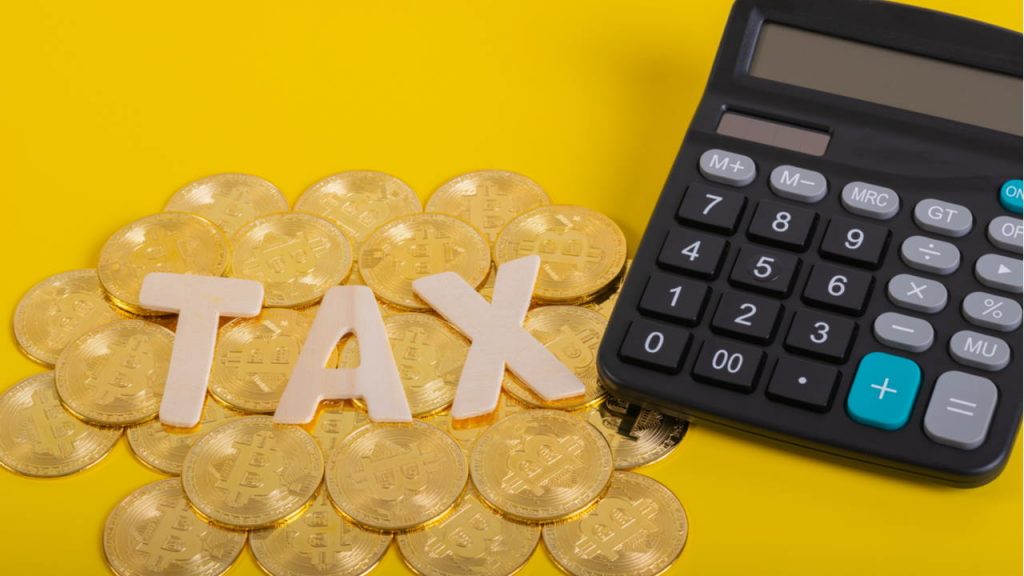Understanding Crypto And Taxes

Cryptocurrencies have become increasingly popular in recent years, but with their growing use comes a complex set of tax implications. With the potential for high returns and volatile markets, it is essential to understand the tax implications of crypto transactions. This article will provide an overview of understanding crypto and taxes, including topics such as calculating cost basis, identifying taxable events, and calculating taxable income from crypto activities. So if you’re ready to take your crypto investments to the next level, read on and get informed about how taxes apply to your crypto journey!
Tax Implications of Crypto Transactions
Crypto transactions, due to their digital nature, can be subject to a variety of complex tax implications. These include identifying what type of income is generated from the transaction (such as short-term capital gains or long-term capital gains), calculating the cost basis of the asset, and determining whether any taxes are due on the transaction. Furthermore, depending on where you live and how you use your cryptocurrency investments, you may also need to report crypto activities on your tax returns. Crypto investors need to understand these tax implications to accurately report their crypto activity and avoid costly penalties or fines. Tax professionals can help guide individuals through the process of understanding crypto and taxes to ensure that they comply with all applicable laws. With a clear knowledge of what is required, investors can optimize their investments while minimizing their overall tax burden.
The world of cryptocurrency and taxes is complex, but with the right guidance, investors can maximize their investments while minimizing their overall tax burden. With a strong understanding of fair market value, investors can be sure that they are accurately reporting all crypto activities on their tax returns.

Identifying Taxable Events with Crypto Assets
Identifying taxable events with crypto assets is an essential part of filing accurate tax returns. When it comes to cryptocurrency transactions, understanding the types of activities that can trigger a taxable event is key to avoiding costly penalties and potential legal issues. Generally, any time a crypto asset is sold or exchanged for another type of currency or asset, a taxable event has occurred. This includes exchanging one cryptocurrency for another, selling virtual currency for fiat currency (such as US dollars), or exchanging digital assets for goods and services. Additionally, certain types of crypto trading activities may also be considered taxable events depending on the specific circumstances. It’s important to consult with a qualified tax professional to ensure that all applicable taxes are reported accurately and promptly. By staying up-to-date on the latest rules and regulations regarding crypto taxes, investors can save time and money when filing their annual returns.
As cryptocurrency becomes increasingly popular, understanding the tax implications of crypto transactions is essential for staying in compliance and avoiding costly penalties. With the right knowledge and guidance, investors can stay ahead of the curve when it comes to filing accurate returns. But that’s not all – next, we’ll discuss what happens when you sell or exchange cryptocurrency for fiat currency.
Selling or Exchanging Cryptocurrency for Fiat Currency
When it comes to selling or exchanging cryptocurrency for fiat currency, such as US dollars, a taxable event has occurred. In this case, the fair market value of the asset is used to determine how much taxable income must be reported. Additionally, investors should also keep track of their cost basis – the original purchase price of the asset plus any additional costs associated with its ownership (such as transaction fees and commissions). This is necessary for calculating capital gains taxes when the asset is eventually sold.
It’s important to note that crypto activity can result in both short-term and long-term capital gains taxes. Short-term capital gains taxes are triggered when an asset is held for less than one year before being sold or exchanged while long-term capital gains occur when an asset is held for more than one year before being sold or exchanged. Crypto investors should consult with a qualified tax professional to understand which types of activities will result in short-term or long-term capital gains and which tax rates apply accordingly.
Trading between different types of cryptocurrency.
Trading one type of crypto for another type of crypto is a common practice among cryptocurrency investors. When this occurs, it is important to understand that a taxable event has taken place. The fair market value of the asset at the time of the trade must be determined and reported on tax returns. Additionally, investors should keep track of their cost basis – which includes the original purchase price plus any additional costs associated with ownership (transaction fees and commissions). This will aid in calculating capital gains taxes when the asset is eventually sold or exchanged for fiat currency.
Crypto activity can result in both short-term and long-term capital gains taxes. Short-term capital gains are triggered when an asset is held for less than one year before being sold or exchanged while long-term capital gains occur when an asset is held for more than one year before being sold or exchanged. Knowing which type of activity you are engaging in and understanding the applicable tax rates are key points to know before trading one type of crypto for another type of crypto. Taxpayers should consult with qualified tax professionals to make sure they stay compliant with all applicable laws and regulations.
Utilizing Cryptocurrency for Purchasing Goods and Services
Using cryptocurrency to purchase goods and services is becoming increasingly popular as more businesses start to accept digital currency payments. When it comes to taxes, this type of transaction falls under the category of “ordinary income” and must be reported on tax returns. The fair market value of the asset at the time of purchase should be determined and reported to accurately calculate any capital gains taxes that may result from future transactions. Additionally, crypto investors should keep track of their cost basis – which includes the original purchase price plus any additional costs associated with ownership (transaction fees and commissions). This will aid in calculating capital gains/losses when the asset is eventually sold or exchanged for fiat currency.
Cryptocurrency users should also familiarize themselves with applicable tax laws in their jurisdiction before engaging in any transactions involving digital assets. It is important to understand what types of activities are considered taxable events and how they will impact your overall tax liability. Consulting with qualified tax professionals can help ensure that you remain compliant with all applicable laws while also optimizing your overall financial situation.
Receiving Crypto as Payment for Work or Other Services Rendered
Receiving cryptocurrency as payment for work or services rendered can be an attractive way of earning income. However, it is important to understand the tax implications of these transactions to remain compliant with applicable laws. Since cryptocurrencies are considered capital assets, any profits made from these activities must be reported as either short-term or long-term capital gains depending on the length of time you held the asset. Additionally, any transactions involving digital currency are subject to self-employment taxes and should be reported as ordinary income on your tax return. It is advisable to consult a qualified tax professional before engaging in any activities that involve cryptocurrency payments to ensure full compliance with applicable laws and regulations.
Mining Cryptocurrency as a Source of Income
Mining cryptocurrency can be a lucrative source of income, but it is important to understand the tax implications associated with this activity. Cryptocurrency miners must report any profits made from mining as taxable income. Additionally, these profits are subject to capital gains taxes when they are exchanged for fiat money or other virtual currencies. Furthermore, miners must pay self-employment taxes on their mining earnings and should consult a tax professional before engaging in mining activities. It is also important to track the cost basis of any mined coins since this will help determine the amount of capital gain or loss when exchanging mined coins for fiat money or other digital assets. For those looking to maximize their income from mining activities, understanding these concepts and working with a qualified tax professional can help ensure compliance with all applicable laws and regulations.
Gifting Cryptocurrency to Family or Friends
Gifting cryptocurrency to family or friends is a popular way to share wealth, however, it’s important to understand the tax implications associated with such activities. Depending on the amount of cryptocurrency gifted, the giver may be subject to gift taxes. Additionally, if the recipient of the gift sells their crypto for a higher value than what was gifted, they may be liable for capital gains taxes on any profits made. It’s also important to note that if the recipient transfers digital currency out of an exchange and into a wallet they own, this could be considered a taxable event and should be reported on their tax return. To avoid any potential issues with taxation, both parties should consult a qualified tax professional before gifting cryptocurrency. With proper planning and guidance, gifting virtual currency can be done in a way that is compliant with all applicable laws and regulations.
Disposing of Cryptos through Hard Forks and Airdrops
Disposing of crypto through hard forks and airdrops can be a lucrative way for investors to increase their holdings. Hard forks occur when a new version of the blockchain protocol is created, resulting in two separate, distinct blockchains. Airdrops are when coins are distributed by cryptocurrency projects to holders of other cryptocurrencies as an incentive or promotion. Both of these activities can be beneficial to investors, however, it’s important to understand the tax implications associated with them. If you receive additional coins from a hard fork or airdrop, you may be subject to capital gains taxes on any profits made from selling those coins. It’s also important to note that any losses incurred from disposing of your crypto can be used to offset other capital gains during tax season. Ultimately, crypto investors should consult with a qualified tax professional before engaging in either of these activities to ensure full compliance with all applicable laws and regulations.

Conclusion
In conclusion, cryptocurrency transactions can be subject to taxation, and it is important to understand the implications of these taxes before engaging in any activity that involves digital currency. Cryptocurrency miners must report their profits as taxable income, while those who receive crypto as payment for services rendered should report these payments as ordinary income on their tax return.








